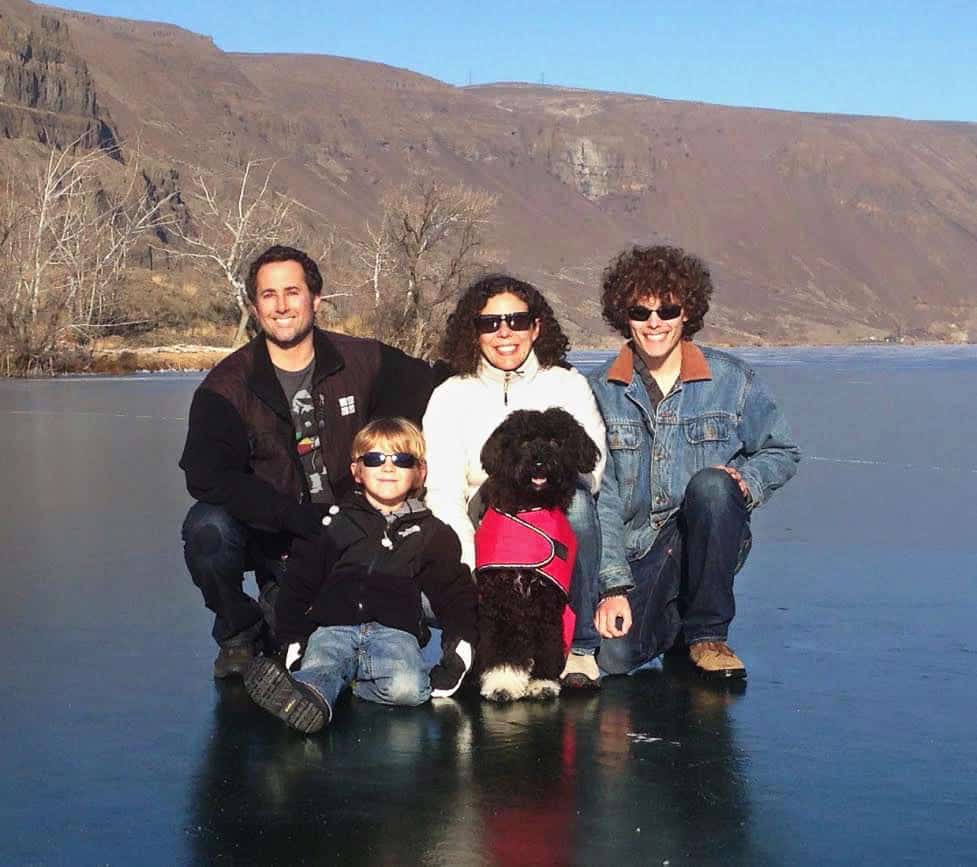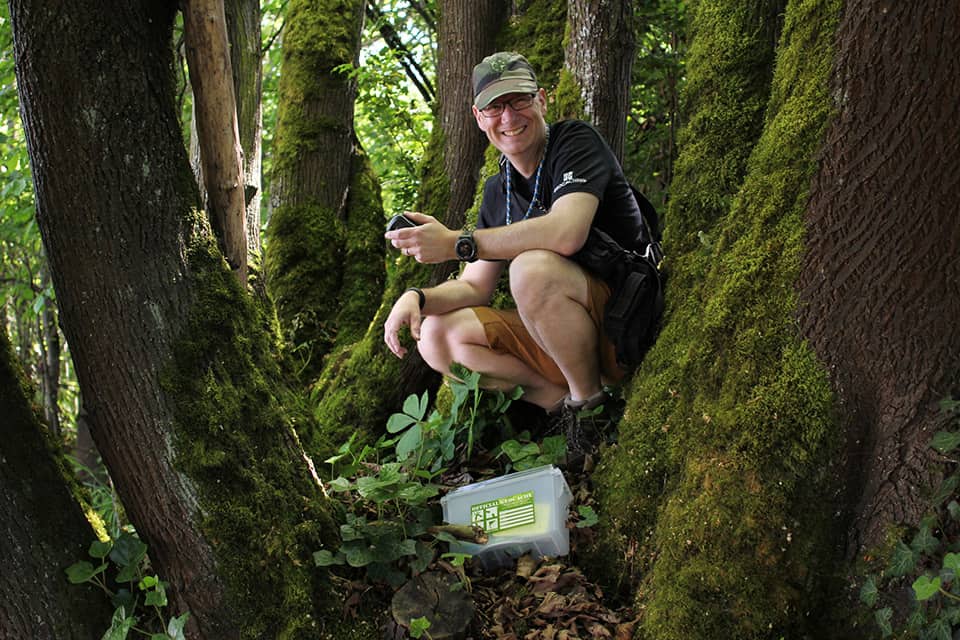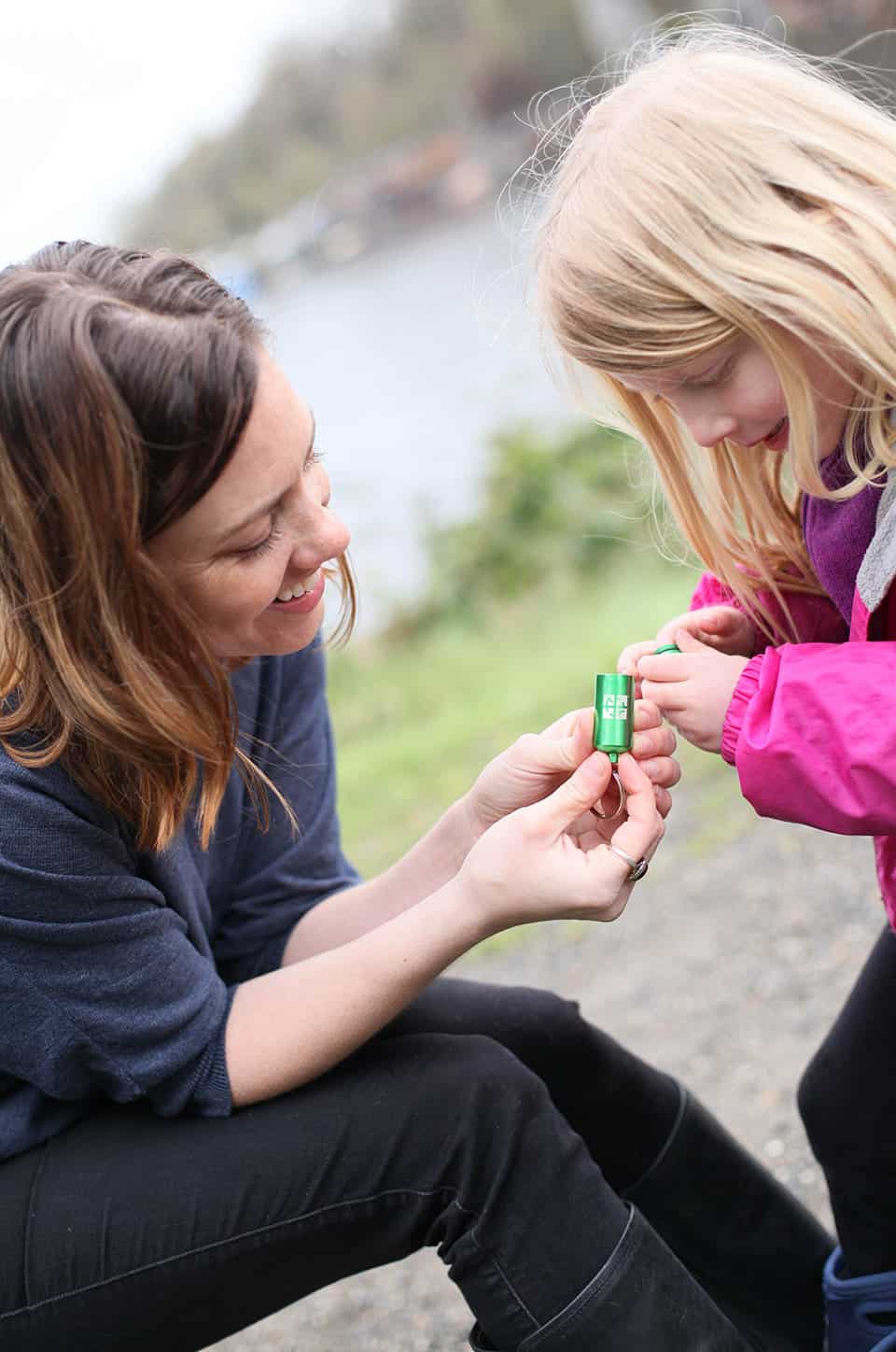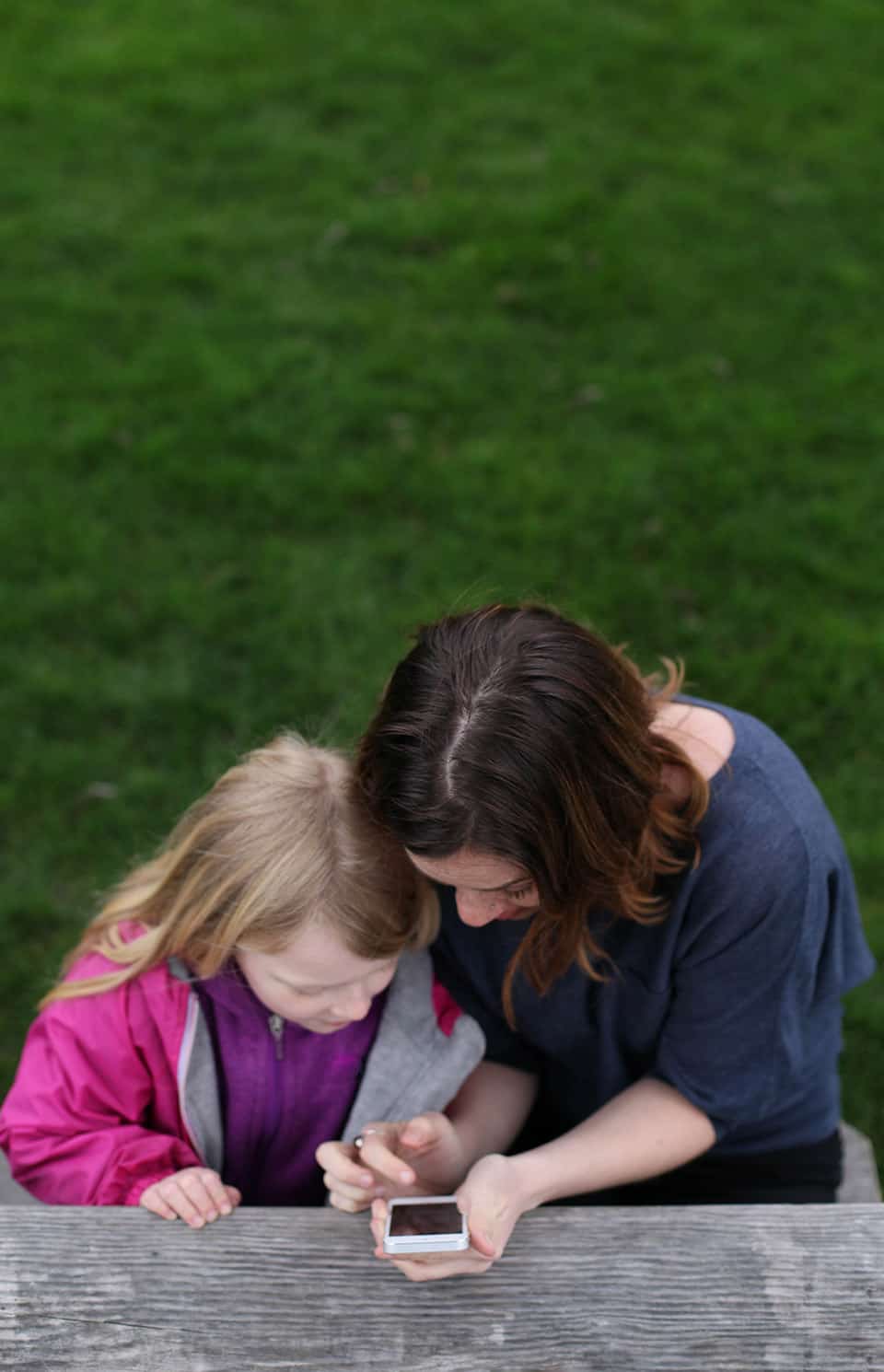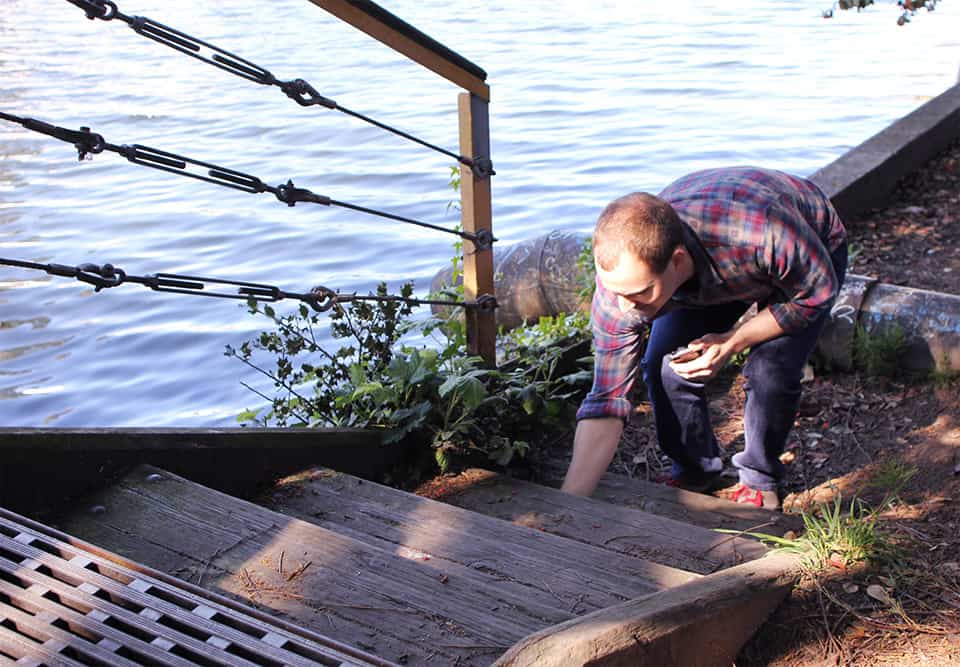Geocaching: A global treasure hunt
written by Isaac Peterson
Seattle-based Groundspeak is a global technology company that orchestrates a worldwide treasure hunt called geocaching.
Geocaching works like a game of hide-and-seek, where someone hides a box, then enters that spot’s coordinates (latitude and longitude) along with a brief description on geocaching.com. These GPS coordinates are searchable on the site and appear as a location pin on the geocaching app. Other geocachers can look for the box, and when they do, they sign the logbook and replace it in the same hiding place, then post a written log of their experience on geocaching.com. The global game is coordinated through the company’s website and through its geocaching mobile applications (iOS and Android).
Users of the site build their profiles and use it to network and to keep score. The site serves as a global leaderboard as well as a hub of the international community.
Founded in 2000 by Jeremy Irish, Bryan Roth and Elias Alvord, Groundspeak founders believe the world is a better place with geocaching. “There are almost three million geocaches worldwide and, last year, we received almost 80 million geocache logs,” Roth said. “We often say that geocaching is the biggest secret hobby in the world, but it’s becoming less of a secret day by day.”
Groundspeak is constantly popping up on “best places to work” lists, especially for outdoor enthusiasts. It now has seventy-five employees who enjoy a healthy host of benefits, such as stock options, almost a full month off every year, maternity and even paternity leave, and 100 percent medical, dental and vision plans.
The company’s revenue comes from its “freemium” membership service—everyone can play and the app is free, but premium members unlock advanced features including an ecosystem of third-party applications for $30 per year. With thousands of premium members around the world, Groundspeak continues to build a strong financial base.
“Our plans for growth include new mobile and web-based geocaching feature development as well as global community engagement and marketing initiatives.” Roth said, “We have some ideas for what comes next but, of course, we’re going to keep them under wraps until they are ready for release.”
The game mechanics are fairly simple, but they allow for infinite possibility. There are no rules. The geocache could contain anything and be hidden anywhere. It might be a magnetic box attached to a street sign, or message hidden inside a fake rock. Groundspeak manufactures geocache containers, which look like weather-proof Tupperware emblazoned with the green geocaching logo, alongside so-called “devious” containers, which look like bricks, pinecones, golf balls and metal bolts. There’s even a magnetic container that looks like a piece of used chewing gum.“Geocachers can be extremely creative,” Roth said. “I found a cache near Munich, Germany last year containing a code word that unlocked the trunk of a nearby vehicle. When I opened the trunk, there was a full pirate-themed scene with fake doubloons, a fake parrot and much more. It was really amazing!”
For many, technological advancement seems to come at the cost of social isolation. The growth of social networks and smartphone technology means more screen time and less time participating in the real world. Geocaching reverses that dynamic and reveals new possibilities for information technology: it can become a tool for greater engagement with our world and each other. In a society where digital interaction is the default and IRL (in real life) has become a necessary clarification, Groundspeak’s mission seems more strategic.
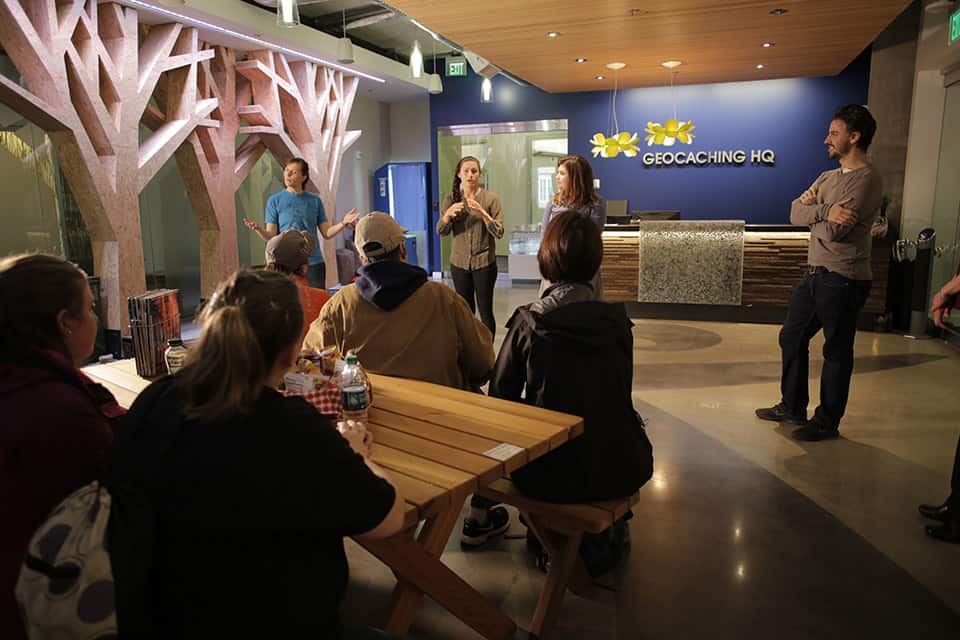
“Unlike most technology where folks are staring at screens, geocaching leverages technology to inspire outdoor play,” Roth said. “Additionally, when geocachers begin to engage with the local community, they can create tremendous bonds of friendship and camaraderie by geocaching together or attending geocaching events.”
There is an innate sense of childhood exploration to geocaching. I recently took my 6-year-old daughter to look for a geocache hidden in the park near our house. I watched her eyes widen as I explained to her that there were treasures hidden all over the world, and that I had a map to them on my phone.
“Like in Legend of Zelda?” she asked, as we discovered the container underneath a boulder. It was the perfect antidote to screen time, to which she’s already grown accustomed. There was true astonishment in her voice as she realized the real world could be as magical as a video game.
“Geocaching does create a feeling of wonder for participants,” Roth mused. “It’s been particularly effective at bringing families together and getting the kids outside and away from their televisions and game systems. We believe that playing outside is really important for everyone and we consider ourselves to be fortunate to be involved in this game and the worldwide geocaching community.”Roth offered many tales of his top geocaching experiences, from rappelling down a cliff in Germany to exploring caves in Finland in search of elusive geocaches. One day, however, eclipses all others. “I have to say that meeting my wife and now-adopted-son, Dylan, at a geocaching event near Seattle in November 2001 is my favorite by far.”
